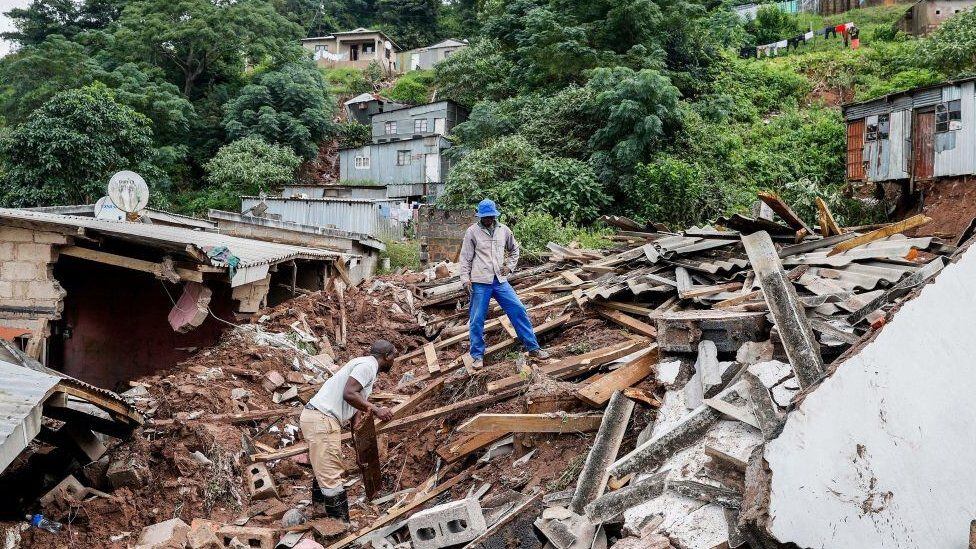Devastating floods in the province South African KwaZulu-Natal, in the southeastern part of the country, have left around 400 people dead.
Authorities declared a state of emergency in the area after months’ worth of rain fell in a single day in what has been described as “one of the worst weather storms in our country’s history.”
Look: Holy Week: the political reasons behind the condemnation and crucifixion of Jesus
Landslides have trapped people under buildings and more flooding is expected.
Rescue work has been hampered by poor visibility.
On Tuesday, the BBC witnessed one such search operation for a 10-year-old girl who was part of a family of four swept off a flooded bridge.
Volunteers in the community waded into the muddy river, taking turns cutting branches with machetes and removing debris and garbage.
South African President Cyril Ramaphosa said the disaster “is part of climate change”, but some locals have blamed poor infrastructure.
What role has climate change played?
The weather system that triggered the flooding caused more than 300mm of rain to fall over a 24-hour period on April 11.
The amount of rain that fell on Monday was equivalent to about 75% of South Africa’s average annual rainfall.
Tafadzwanashe Mabhaudhi of the University of KwaZulu-Natal says the weather was typical of the type that develops off the coast of South Africa, with warm, moisture-laden air blowing in from the Indian Ocean.
The mountainous terrain in that area of South Africa also means that the air rises and as it does, it cools and forms rain clouds.
The South African Weather Service (SAWS) said the amount of rain recorded was “on the order of values normally associated with tropical cyclones”.
Mabhaudhi believes that it is not correct to attribute individual climate events that occur on short time scales to longer-term trends, such as global warming.

But SAWS experts say severe and extreme weather events are becoming more frequent and more extreme as a result of climate change.
“In other words, heavy rain events such as the current incident can be expected to recur in the future and with increasing frequency,” the service said.
Source: Elcomercio

:quality(75)/cloudfront-us-east-1.images.arcpublishing.com/elcomercio/GE4TEMJNGA2C2MJVKQYDAORRHE.jpg)





